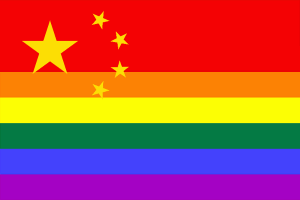Furore over “gay” omission in newest Chinese dictionary
 Source: bbc.co.uk/news
Source: bbc.co.uk/news
While human rights are not widely acclaimed as one of the focal points of China’s government, recently there has been something of an uproar about the latest version of one of China’s most prominent dictionaries: a glaring omission that tacitly denounces homosexuality.
The word in question is 同志 (tóngzhì). On the surface, it means “comrade”, and has been used for years as a familiar form of address between Chinese people – particularly between fellow members of the Communist party. However, just as ‘gay’ means ‘happy’ in English (yet the word has been re-appropriated for describing homosexuals), 同志 is used as a colloquial term for a gay friend or lover. While the new version of the dictionary includes many new terms introduced into the language in recent times – slang included – the definition for 同志 is notably lacking its very common secondary usage. Unsurprisingly, this has caused something of a furore among gay rights activists.
From the article:
Some gay rights campaigners are up in arms.
One of them, whose name was given as “Nan Feng”, told China’s official news agency Xinhua it was unacceptable that the “gay” meaning of “tongzhi” was excluded from the dictionary just because of the compilers’ own preferences and values.
“Tongzhi is the most commonly used, non-offensive term used by our circle to refer to homosexuals,” Nan Feng was quoted as saying.
“We hope the compilers can view the word from an impartial standpoint.”
The standard word for “homosexual” in Chinese is “tongxinglian”, which translates literally as “same-sex love”. But many gay Chinese are said to view it as too clinical.
“Tongzhi” literally means “same will”.
While few countries are exempt from occasionally being compared with George Orwell’s famous novel 1984, to me this was immediately reminiscent of the protagonist Winston’s comrade at the Ministry of Truth, Syme.
Syme was notable in that he was instrumental in collating the latest revisions of the Newspeak dictionary, and in doing so destroyed thousands upon thousands of words. The idea behind the greatly simplified and reduced language was that it would eventually control thought – if people didn’t have the words to describe a particular thought or idea that was contrary to the government’s wishes, eventually they would stop having these thoughts.
Today, the term Newspeak is sometimes used to describe any attempt to restrict language that is ‘disapproved’ by a ruling government or other powerful figure.
However, Newspeak is happening closer to home than you’d think – the state of Tennessee recently passed a law making it illegal to say the words “gay” or “homosexual” in elementary and middle school, in order to stamp out anybody who would imply that there is any other ‘correct’ sexuality other than heterosexuality.
